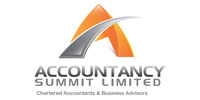Sole traders must register with HM Revenue and Customs (HMRC) when they start trading. It is advisable to register as soon as you start trading but you should register by 5 October in your business' second tax year at the latest.
You should allow ten working days (21 days if you're abroad) to complete the registration process. HMRC will send you an activation code which you will need to log in to your online account.
If you have never registered with HMRC before, you can register your new business with HMRC on the GOV.UK website.
If you have been registered as a sole trader in the past or have submitted a self assessment tax return before, you can re-register with HMRC using form CWF1.
You will need your ten-digit Unique Taxpayer Reference (UTR). You can find your UTR on previous tax returns, your online account or other documents from HMRC or by calling the self assessment helpline on 0300 200 3310.
Once you have registered as self-employed, you will need to:
- keep a record of your business' sales and expenses
- complete a self-assessment tax return
- pay any tax and National Insurance you owe
- register for VAT if your turnover reaches the VAT threshold
- register with the Construction Industry Scheme (CIS) if you're a contractor or sub-contractor in the construction industry
- arrange any insurance you need to protect your sole trader business
